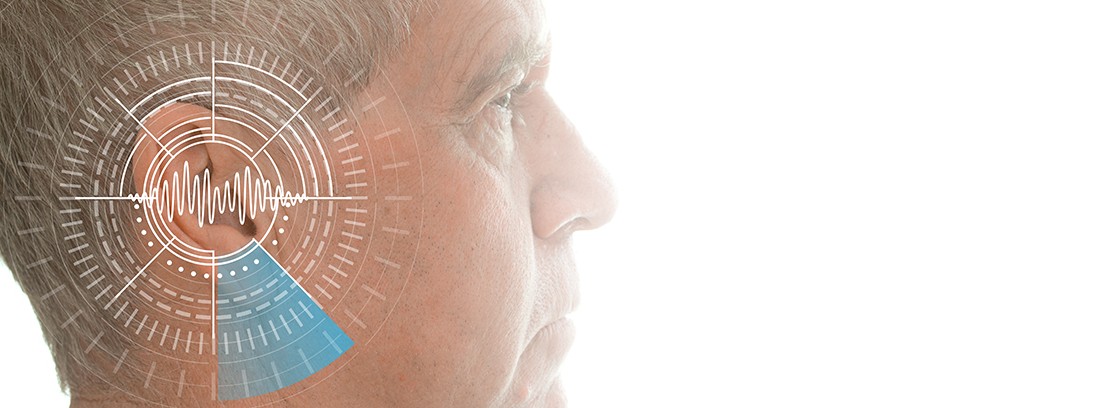Hearing sensitivity: what causes misophonia

Misophonia is a auditory hypersensitivity or a low tolerance for a certain type of auditory stimuli, but without specific characteristics. That is, they do not have to be very high-pitched, very low or very loud sounds.
The term misophonia is relatively recent and was coined by the American scientists Pawel and Margaret Jastreboff. It is, therefore, a condition for which there are still not many studies or a standardized treatment.
What causes misophonia or sensitivity to noise?
The cause of this problem is not clear and there are hypotheses that defend that it is a neurological condition, according to which the activation of neurons associated with an auditory stimulus is both associated with an annoying or stressful experience and negative emotions, the physiological reaction to these sounds being immediate. There are also hypotheses in which this problem is associated with or in which the possible influence of early experiences is contemplated. In any case, as of today, this ailment is not included in the Diagnostic and Statistical Manual of Mental Disorders.
Misophonia or sensitivity to noise is manifested when sounds to which most people have become accustomed and to which they do not pay much attention because they are not significant trigger a intense reaction in people suffering from misophonia, as if it were really something threatening or dangerous.
This problem usually begins in late childhood or early adolescence and tends to worsen over the years.
How does misophonia or sensitivity to noise manifest?
There is a wide variety of sounds that can be highly unpleasant for misophonic people.
- In most cases, these individuals manifest discomfort in the face of sounds made by other people such as, for example, when chewing, sucking, clearing his throat, kissing, whistling or yawning, among others.
- On other occasions it happens before repetitive stimuli and also before ambient sounds like clocks, alarms, air conditioners or, for example, the sound that is produced when turning pages in a newspaper or when pressing the keys of a computer.
- Other circumstances in which the misophonic person may feel irritated is in front of such as ovens, refrigerators, televisions, radios, washing machines or fans. These stimuli produce in misophonic people a state of irritability and agitation, triggering, on many occasions, also reactions of anger or bad mood. They can significantly alter the well-being and quality of life of people and tend, in turn, lead them to avoid certain situations and develop problems in social relationships. The high discomfort for the person with this affectation can trigger discussions and aggressiveness towards others and induce them, in the extreme case, to social isolation.
- Other common reactions are to make use of earplugs, headphones or earphones, change schedules and daily habits in order not to have to expose yourself to those annoying triggering sounds.
In any case, it must be borne in mind that all the above-mentioned troubleshooting attempts try not to hear the sounds that cause discomfort, but not to solve the problem.
Treatment
Today there is no treatment that cures misophonia. However, the psychological treatments they can help the person cope and improve the situation. Some objectives that can be approached through psychotherapeutic work are:
- Talk about the problem, accept it and learn to live with it.
- that this affectation entails, working on the worries and obsession that are usually triggered around annoying sounds.
- Make the interpretation of specific situations more flexible to try to stop it from being perceived as something so intolerable or threatening.
- An important aspect to take into account will be to try to preserve coexistence relationships family and personal relationships, which in many cases are seriously damaged, and in which the misophonic person may also feel misunderstood and unfairly treated, due to their exaggerated reactions.
The objective should be focused on being able to face the situations in which these types of sounds are produced and make the daily dynamics of the misophonic person as satisfactory as possible.
What you should know:
- Sounds that most people have become used to and don't pay much attention to trigger an intense reaction in people with misophonia, as if it were something threatening or dangerous.
- The misophonic person may feel uncomfortable, irritated or overwhelmed by the sound of a fan, clock, when someone types on the computer, chews or yawns ...
- Today there is no treatment to cure misophonia. However, psychological treatments can help the person cope with the problem and improve the situation.
Remember that inMAPFRE We take care of your well-being and that of yours, that is why we offer you one with the best coverage so that you are always protected against any pathology or disease.
CALCULATE YOUR PRICE
Elena Killed Specialist in Clinical Psychology
(Updated at Apr 14 / 2024)